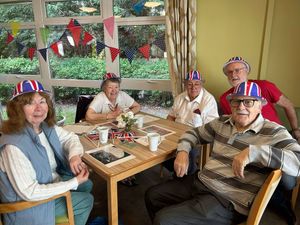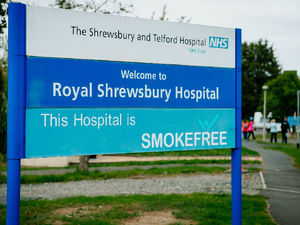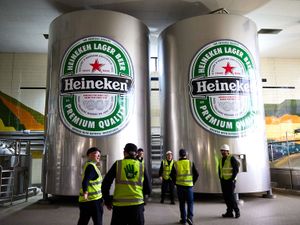Bishop of Shrewsbury: Do not airbrush Easter
A Shropshire church leader has used his Easter message to attack the "weakening" of the Christian festival.
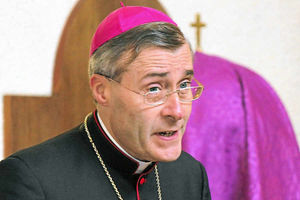
The Catholic Bishop of Shrewsbury accused some of attempting to "airbrush" Easter out of the bank holiday weekend.
The Right Reverend Mark Davies also called on Christians to claim back Easter.
He spoke of the controversy surrounding a Cadbury's Easter egg hunt at National Trust properties, which had simply been referred to as an 'egg hunt'.
Cadbury and Nestle have also been criticised by Christian groups for missing the word Easter from their chocolate eggs. Both companies insist there has been no "deliberate decision" to drop the word from packaging, with Cadbury saying the word Easter is embossed on the actual egg.
Bishop Mark said: "In recent weeks a chocolate manufacturer and a national charity may have sought to airbrush the name Easter from this public holiday.
"And a recent survey of national opinion also produced some confusing results as to what the British people believe about Christ's resurrection and the life of the world to come.
" Even in the marketing an egg trail or a public holiday, the weakening of the Christian memory matters, insofar as it contributes to obscuring the very vision of human life and destiny which has sustained our national life for almost a millennia and a half."
He said Christians in Shropshire should fight against the watering down of Christianity in the British public holiday, by spreading the word about their faith to friends, family and work colleagues.
He said people who come to him seeking baptism have different stories to tell, but "each one has met a witness – a husband or a wife; a friend or family member or a colleague at work".
Bishop Mark will give his address at his Easter Sunday service at Shrewsbury Cathedral tomorrow.
Large supermarkets and DIY stores will close completely because of the Easter trading laws, leading to an expected rush to the shops today.
The Bishop of Lichfield, the Right Reverend Dr Michael Ipgrave, used his seasonal message to urge people to use the pause that Easter Sunday brings to life to allow them to consider the role of the church.
The Bishop, whose Anglican diocese includes Shropshire, said: "The more news we hear, watch or read, the more we can feel that the world is a dark, divided and depressing place. But the message of Easter is a message of hope."
Bishops providing messages of hope
The Bishop of Shrewsbury
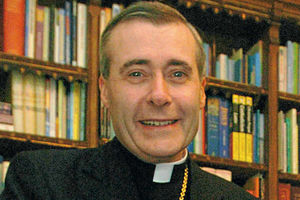
'Now we are those witnesses …'
These words of the Apostle Peter echo for us on Easter morning. We are now the witnesses to Christ's resurrection because we have come to know Him. We can as truly say as Simon Peter that in the Holy Eucharist 'we have eaten and drunk with him after his resurrection from the dead' and have received the mission 'to proclaim this to his people'. These words have a special resonance for us at this Easter of 2017, dedicated in Shrewsbury Diocese as a 'Year for Mission'.
In recent weeks a chocolate manufacturer and a national charity may have sought to airbrush the name 'Easter' from this public holiday; and a survey sponsored by the BBC produced some confusing results as to what the British people believe about Christ's resurrection and the life of the world to come.
It is a confusion which perhaps arose from people being asked in a phone call about Christ's empty tomb and the hope of eternal life in much the same way as questions might be asked about a commercial product or a political choice.
The resurrection of Christ and our hope in the face of death can never be treated as matters of quick comment or casual speculation: they constitute the historic and transcendent event and the faith-filled conviction which has shaped our history, our world and all our lives.
Even in the marketing of an egg trail or a public holiday, the weakening of the Christian memory matters, insofar as it contributes to obscuring the very vision of human life and destiny which has sustained our national life for almost a millennia and a half.
Saint Peter's words remind us that from the beginning of the church faith has been communicated by those who could truly be witnesses. I think of the hundreds who, year after year, gather in this cathedral seeking baptism or reception into full communion. They all have different stories and yet, invariably, each one has met a witness: a husband or a wife, a friend or family member, who somehow gave testimony to the risen Christ, alive and living among us.
On Easter Day, we are called anew to recognise this mission entrusted to us and to see: "Now we are those witnesses."
The Bishop of Lichfield
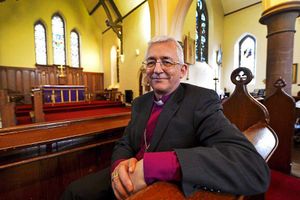
One of the loveliest of the Easter stories in the Bible is Luke's description of two travellers walking on the road to Emmaus after Jesus' crucifixion.
They are not in a good mood – dejected, hopeless and disillusioned by what has happened.
Then an unknown stranger meets them on the way, shares with them a message of good news, and joins them for a meal.
As he breaks the bread, they realise that the stranger is Jesus, and they feel that their hearts are burning within them with rekindled hope.
Over the last six months, it has been my privilege to travel widely across the diocese, visiting communities, schools, churches, projects, and workplaces in Shropshire, Staffordshire and the West Midlands.
Young people in village schools caring for a fellow pupil with disabilities; asylum seekers meeting together to share with enthusiasm their new-found Christian faith; people taking time to look out for and listen to those suffering from dementia; churches and mosques twinning with one another to serve their local communities – these are just a few examples of so many good things going on in our area.
The more news we hear, watch or read, the more we can feel that the world is a dark, divided and depressing place.
But the message of Easter is a message of hope. As we learn to walk together, we meet unexpectedly with people who inspire and encourage us and we sometimes find that, like those travellers on the road to Emmaus, our hearts are burning within us.
That is what St Chad, the first Bishop of Lichfield, found when he walked around Mercia 14 centuries ago; it is what I have found for myself today, and it is the direction of travel on which churches, schools and communities across our diocese are embarking.
We are inviting everybody who wishes to join us: 'Come, follow Christ in the footsteps of St Chad'.
We'll be exploring this further at a celebration at Lichfield Cathedral on May 20 and you can find out more on our website lichfield.anglican.org.

